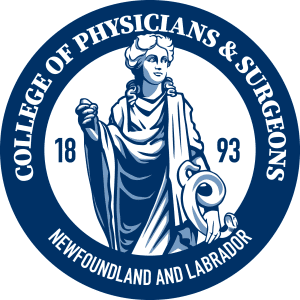The College sets standards of professional conduct for physicians. We expect your physician to act in your best interest, communicate clearly and honestly, and offer professional care and advice that meets our standards.
Communication
You can expect your physician to:
- Communicate clearly, openly, honestly, and with sensitivity.
- Treat you with dignity and respect, and without discrimination.
- Work to understand your healthcare needs.
- Give you information about available treatment options, including the risks and benefits of these options.
You have the right to:
- Make your own decisions about your healthcare.
- Ask your doctor questions about your clinical condition and treatment options.
Physical Examinations
You can expect your physician to:
- Explain the scope of the examination.
- Provide privacy if you need to undress.
- Only expose the areas of your body that need to be exposed for the examination.
You have the right to:
- Ask questions about the examination.
- Ask to have another person present for a sensitive exam (pelvic, genital, breast, rectal).
- Ask your doctor to stop the examination if you do not want to continue.
Medical Records
You can expect your physician to:
- Keep your personal health information confidential.
- Only charge a fee for providing a copy of your records if it is reasonable in the circumstances and meets the NLMA Physician’s Guide to Non-Insured Services.
You have the right to:
- Ask to review or be provided with a copy of your medical records:
- In a private clinic – contact the physician/office staff.
- In a hospital facility – contact the hospital’s medical records department.
- If your physician is no longer practicing – contact the clinic/hospital where they worked to see if your medical records are held on file. If you are not able to obtain your records, you can Contact Us for assistance.
Virtual Care
You can expect your physician to:
- Explain the appropriateness and any limitations of providing virtual care.
- Consider whether virtual care is an appropriate way to provide your care.
- Take reasonable steps to facilitate access to in-person care if it is required.
- Only prescribe opioids or controlled medications through virtual care if certain criteria are met.
You have the right to:
- Ask to be seen in-person (your physician must prioritize your preference where in-person care is clinically appropriate and available).
- Ask your physician about their practice address and where they are licensed.
Professional Relationships
You can expect your physician to:
- Maintain clear boundaries.
- Not offer comments or engage in behaviours that are of a sexual nature.
You have the right to:
- Be treated in a professional and objective way.
- Question anything your physician says that seems inappropriate.
Closing Practice
You can expect your physician to:
- Provide you with adequate notice of their planned closure of practice.
- Securely retain your medical records.
You have the right to:
- Know how to get a copy of your medical records once your physician has closed their practice.
If you require more information on what to expect from your physician, please review our Standards of Practice and Practice Guidelines or Contact Us for more information.
What Your Physician Expects of You
The physician-patient relationship is built on trust, respect, and communication.
Your physician expects you to:
- Communicate clearly and honestly about your symptoms and medical history.
- Treat them and their clinic staff with dignity and respect.
- Ask questions if you need more information.
Your physician has the right to:
- Provide a safe, harassment-free work environment for their office staff.
- End the physician-patient relationship if you display threatening or abusive behaviour towards the physician or their office staff, including comments of a sexualized or racist nature.
For more information, please review the College’s Standard of Practice on Establishing & Ending the Physician-Patient Relationship.

